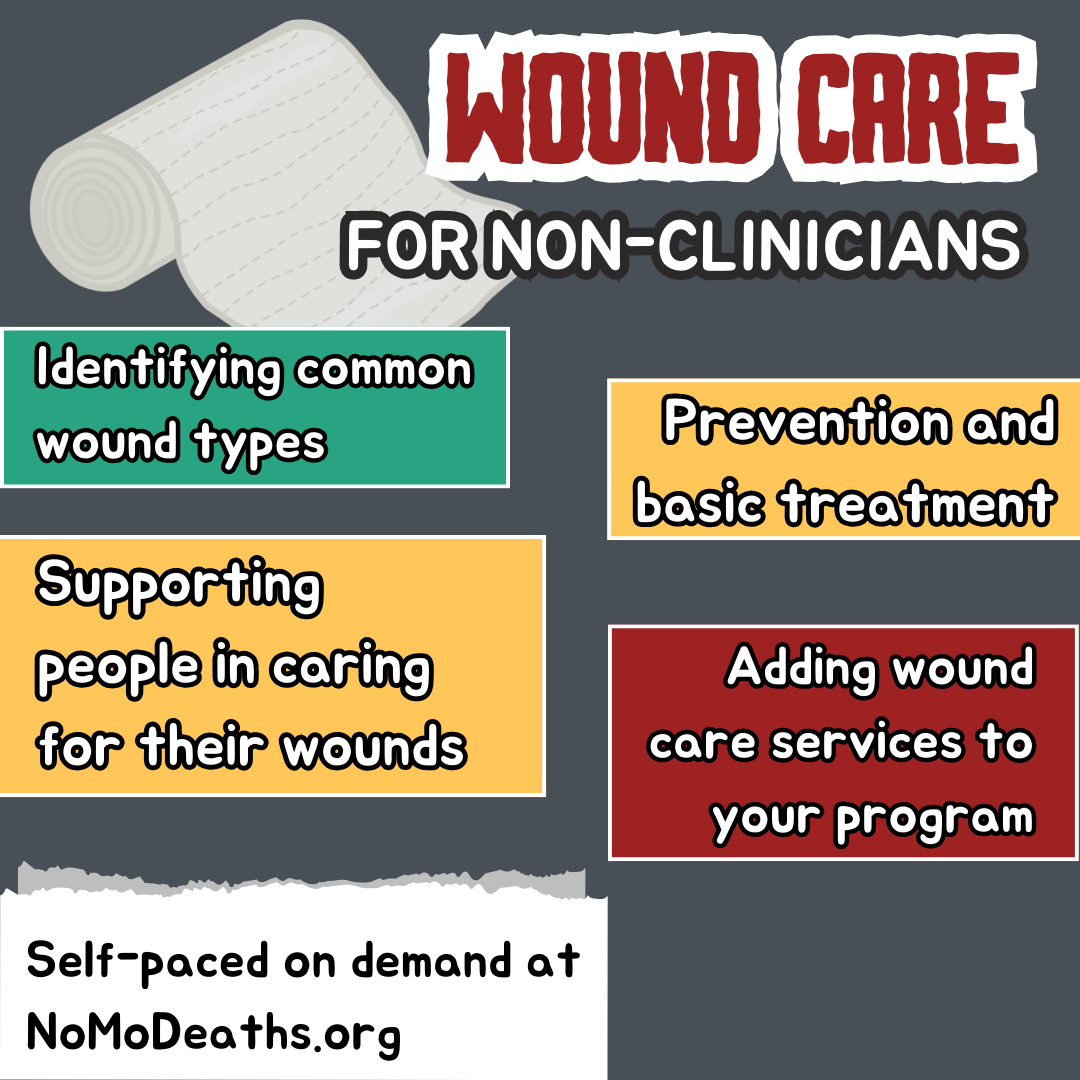Wound Care Training for non-CLinicians
In a world where many individuals do not have adequate access to medical care, basic wound care services and skills can be a great asset for organizations providing other services to the community. This multi-part, self-paced course introduces non-clinicians to the basics of identifying common skin and soft tissue infections, methods for prevention of wounds and care for existing wounds, strategies for supporting an individual in caring for their own wounds, and ways to implement wound care services within your program. In addition to the self-paced course, training attendees can register for regularly scheduled office hours to discuss wound care practices further and ask questions of experience practitioners.
Training Modules
Wound Care Fundamentals: Learn about the basics of wounds, how you can support the body's healing process, common wound complications, as well as wound prevention and safer drug use tips.
Wound Types: Learn about common types of wounds and skin infections you may encounter in the field, understand when a wound needs medical attention, and learn strategies for prevention and care
Strategies for Community Workers and Organization to Support People Who Are Caring for Wounds: Identify strategies to increase confidence for people who are self-managing their own wounds, and explore practical ways that you or your organization can expand your wound care knowledge / offerings. This section has an accompanying worksheet and additional Missouri wound-care resources.
Office Hours and Resources
After viewing the trainings, if you have further questions about wound care or want to seek additional guidance from our trainers, register for office hours below. Note: While recommended, you don’t have to view all three in their entirety to come to office hours!
For more training on a variety of harm reduction topics, visit our training page here!
*Disclaimer: The content in this course is intended to offer strategies to reduce harms related to drug use. As harm reductionists, we acknowledge and recognize that there is real harm in using drugs - and that there are approaches that reduce that harm. While some of our instructors have medical licenses, this training is for education purposes and is not direct medical advice. People who use drugs may be hesitant to access medical services because of experiences with stigma, mistreatment, legal concerns or logistical barriers. Regardless of their reasons, expert healthcare is preferred in most wound care circumstances to avoid significant downstream harms related to untreated wounds. In accordance with harm reduction principles, this training is meant as advice for people who are unwilling to engage with the healthcare system, acknowledging that it is less optimal but better than no care at all. *
